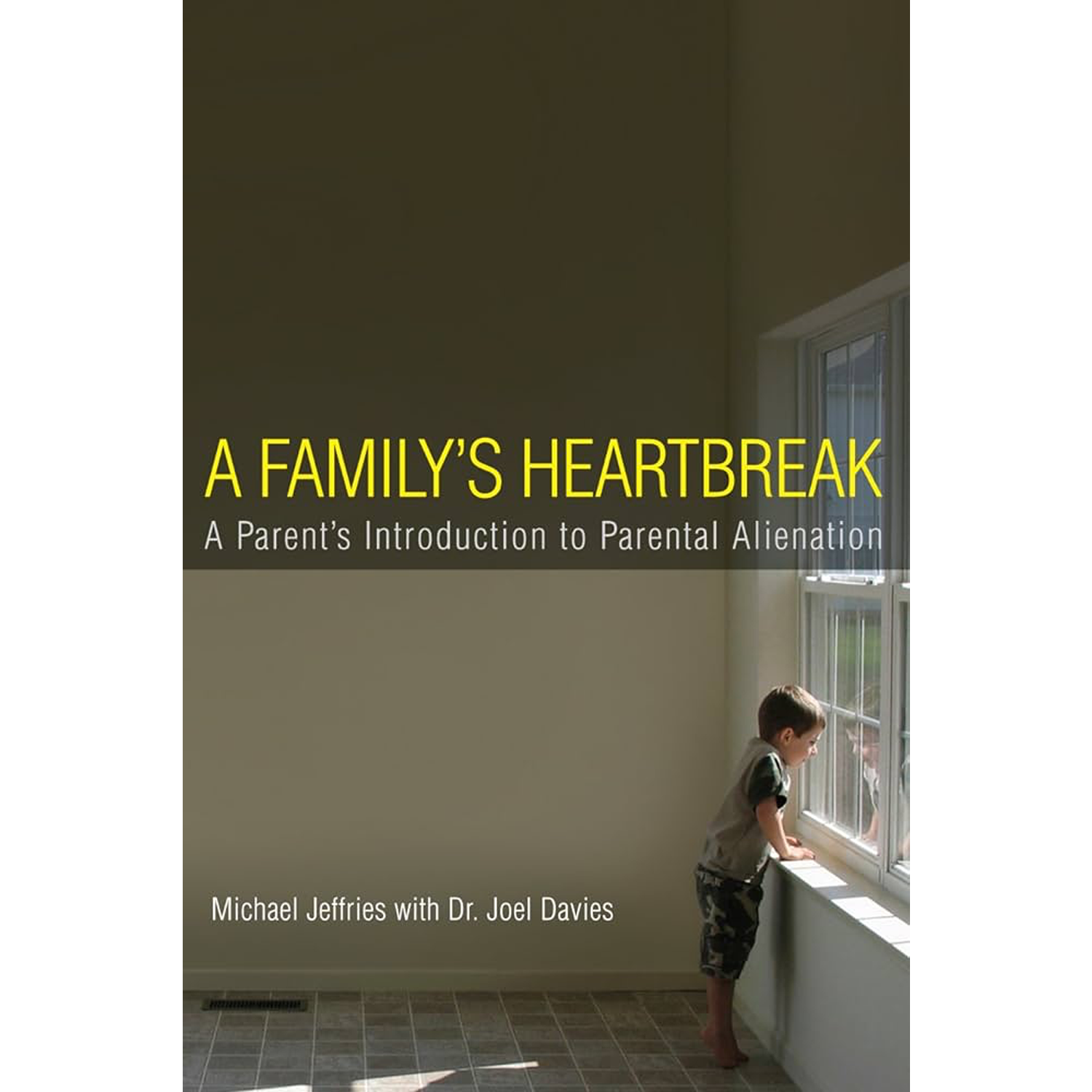
Books by PASG Members
Many PASG members are faculty members of universities in the United States and other countries. They have engaged in extensive clinical work and research regarding parental alienation. As a group, they have published hundreds of scholarly papers, book chapters, and books, some of which are listed here. The inclusion of any book on this website does not confer approval of the book or its author by the PASG Board of Directors.

The Parental Alienation Syndrome: A Family Therapy and Collaborative Systems Approach to Amelioration
Linda J. Gottlieb | English, 2012
In this thought-provoking book, Ms. Gottlieb attempts to resolve the controversies surrounding parental alienation syndrome (PAS) by providing substantial empirical evidence from her treatment cases in support of the eight symptoms which child psychiatrist, Richard Gardner, had identified as occurring in the PAS child, and she further exemplifies the commonality of the alienating maneuvers among the alienating parents. Numerous case examples are explored: horrific tales of manufactured child abuse; referrals to child protective services (CPS) resulting in suspension of visits between targeted parents and their children; meritless reports to police alleging domestic violence in support of orders of protection; and exclusionary tactics preventing targeted parents’ involvement in their children’s medical, educational, social lives and activities. Ms. Gottlieb methodically documents that PAS is a form of emotional child abuse of the severest kind. The author provides an unprecedented number of treatment summaries, which demonstrate the effectiveness of structural family therapy in treating the PAS family. This book will be an excellent resource for: parents who are divorcing or are in conflict, adult victims of PAS, judges, law guardians, matrimonial attorneys, therapists, child protective personnel, law enforcement — and for the professional rescuer who believes that a child must be saved from a parent..

Listen to Me!!! Your Child and Your Divorce
Daniel Gottlieb | English, 2012
Listen to ME!!! is a compilation of expressions direct from the minds and hearts of children. All are direct quotes, completely real, taken from deep discussions in the psychologist’s office. These verbatim testimonies make it easy for parents to better understand their children’s emotional experiences throughout the process of divorce. Divorce is an emotional and traumatic process, and in a certain way, it encompasses an element of irrationality, especially when considering its high psychological and economic price. Listen to ME!!! was born from a desire to help parents understand their children. Rather than appealing to their minds, it appeals directly to their hearts. Dr Daniel Gottlieb has written Listen to ME!!!, a powerful book that describes the consequences of divorce for the entire family, based on his experiences as the court-appointed psychologist for hundreds of divorce cases across the country of Israel.

The Essentials of Parental Alienation Syndrome: It’s Real, It’s Here and It Hurts
Robert A. Evans Ph.D., J. Michael Bone Ph.D. | English, 2011
We are seeing an increase in high conflict, adversarial divorce cases in mental health practices and in the courtrooms around the country. These cases present with a significant amount of parental conflict and, as a consequence, represent a threat to the children caught in the middle of these conflicts. Curiously, there is a great commonality among these cases in terms of the tactics alienators use to separate a parent from his or her children. It is almost as if they, the favored parent, were reading from a published playbook. Parental alienation syndrome (PAS) is acknowledged as being controversial within the mental health profession and equally controversial within the legal profession. It is important for professionals to get a sense of both sides of the PAS issue. Whether one uses PAS as a term, the problems brought by these cases are very real. Whether or not it is the appropriate diagnosis or description of behavior in a case must be determined by facts of that case and supported by evidence and data from multiple sources. An appropriate diagnosis and identification of PAS, along with a description of the severity, can make the difference between timely and effective interventions or allowing parents and children to be scarred for the rest of their lives.

Toxic Divorce: A Workbook for Alienated Parents
Kathleen M. Reay | English, 2011
In the 1980s, Dr. Richard A. Gardner, a child and forensic psychiatrist, championed a child custody litigation phenomenon called Parental Alienation Syndrome (PAS). Since that time, the PAS phenomenon has gained increased recognition in both the mental health and legal fields. For well over four decades, parental divorce has been determined as the cause of a variety of significant physical, emotional, academic, and social difficulties in children and adolescents. Moreover, high-conflict between divorcing or divorced parents, including the PAS phenomenon, is a noteworthy risk factor for children and adolescents. This workbook is the first of its kind for alienated parents and is divided into three parts. Part One will provide the knowledge and understanding you need to personally deal with the ramifications of PAS or to help those who do. Thus, from a broad perspective this book is written for a wide array of readers including those directly affected by PAS as well as for extended family members, significant others, counselors, social workers, psychologists, psychiatrists, child custody evaluators, family mediators, general practitioners, pediatricians, family law lawyers, judiciary, police officers, school administrators, school teachers, and policy makers.

Divorced Fathers: Children’s Needs and Parental Responsibilities
Edward Kruk | English, 2011
Once mainly breadwinners and disciplinarians, fathers are becoming increasingly involved and invested in their children’s lives. Examining how this changing role has affected fathers’ experiences of divorce and the loss of guardianship that too often follows, this exploration offers a glimpse into the emotional state and perspectives of fathers during the divorce transition. Ultimately, this account states that children benefit most from the love and support of both parents and argues for active parenting following divorce.

The Good Karma Divorce: Avoid Litigation, Turn Negative Emotions into Positive Actions, and Get On with the Rest of Your Life
Judge Michele Lowrance | English, 2011
The Good Karma Divorce is that rare guidebook that offers a concrete path to transforming painful experience into positive action. Family Judge Michele Lowrance, who experienced her parents’ divorce and two of her own, has developed what Karen Mathis, past president of the American Bar Association, describes as an “inspired and uplifting alternative to the agonizing divorce process.” Over the past four years, Judge Lowrance has seen literally one hundred percent of divorcing couples who applied the practices described in The Good Karma Divorce avoid trial. Firmly entrenched in real-world applicability, The Good Karma Divorce is a must-read not only for people in any phase of a divorce, but for psychologists, psychiatrists, attorneys, judges, and social workers, as well.

Parental Alienation, DSM-5, and ICD-11
William Bernet | English, 2010
Parental alienation is an important phenomenon that mental health professionals should know about and thoroughly understand, especially those who work with children, adolescents, divorced adults, and adults whose parents divorced when they were children. In this book, the authors define parental alienation as a mental condition in which a child – usually one whose parents are engaged in a high-conflict divorce – allies himself or herself strongly with one parent (the preferred parent) and rejects a relationship with the other parent (the alienated parent) without legitimate justification. This process leads to a tragic outcome when the child and the alienated parent, who previously had a loving and mutually satisfying relationship, lose the nurture and joy of that relationship for many years and perhaps for their lifetimes. The authors of this book believe that parental alienation is not simply a minor aberration in the life of a family, but a serious mental condition. Because of the false belief that the alienated parent is a dangerous or unworthy person, the child loses one of the most important relationships in his or her life. This book includes a comprehensive international bibliography regarding parental alienation with more than 600 citations.

Beyond Divorce Casualties: Reunifying the Alienated Family
Douglas Darnall Ph.D. | English, 2010
The companion to Darnall’s bestselling Divorce Casualties, Beyond Divorce Casualties is a workbook for severely alienated children and their parents. The book describes the how and why of unification therapy, how to prepare for reunification, how to effectively work with attorneys, mediators, parent coordinators and counselors, and even how to say “goodbye” if reunification is not possible. This book also provides many real life examples of alienating behavior, exercises, and specific instructions for how to change your feelings and behavior. Importantly, the book’s underlying assumption is that you have the power to change even if you have no power to change the other parent.

Where Did I Go Wrong? How Did I Miss the Signs? Dealing with Hostile Parenting & Parental Alienation
Joan Kloth-Zanard | English, 2013
Where Did I Go Wrong? How Did I Miss The Signs? is a prevention and intervention resource tool for parents, courts, attorney’s, counselors, agencies and anyone else who needs help with high conflict divorce and relationships. From start to finish, this book talks about divorce, marriage, hostile aggressive parenting during and after a divorce, how to deal with this, and help the children to thrive. From cover to cover, this book is filled with information to help stop the snowball affect of high conflict divorce, hostile aggressive parenting, all of which leads to the psychological abuse of the children by destroying their relationship with one of their parents or another relative. It is the hope that this book can help prevent this abuse from happening and help these families to move forward in a healthy, positive and successful way. All proceeds from this book go to Pas Intervention, a 501(c)(3) non-profit.

The Look of Love
Jill Egizii | English, 2010
Anna, the wife of a prominent local attorney, has decided enough is enough. After nearly twenty years of marriage, she realizes she must get free from her controlling spouse. In the process, she loses the only thing that made escaping worthwhile-her children. Despite their joint custody agreement, her ex uses his wiles, wealth, and legal experience to exile Anna from the family. Her once “normal” relationships with her son and daughter mysteriously sour. The system, the law, and her faith in herself all seem to fail her at the same time. While facing the fight of her life, Anna realizes the true meaning of friendship and love.

Child Custody Evaluations by Social Workers: Understanding the Five Stages of Custody
Ken Lewis | English, 2009
The arrival of Child Custody Evaluations by Social Workers: Understanding the Five Stages of Custody fills what was previously a void in the child welfare literature by defining the parameters of child custody and advocating the use of a stages model to conduct custody evaluations. Because social workers understand the significance of ecological models and holistic practices for child development, the profession has always played a critical role in conceptualizing and implementing effective child custody evaluations. Therefore, it is fitting that this important work, authored by a veteran social worker, is now available for social work practitioners and legal professionals seeking guidance for best practices in conducting mental health evaluations that serve the ultimate goal of protecting and promoting the optimal development of children and families.

A Family’s Heartbreak: A Parent’s Introduction to Parental Alienation
Michael Jeffries, Dr. Joel Davies | English, 2009
A Family’s Heartbreak: A Parent’s Introduction to Parental Alienation, is the true story of one parent’s struggle to maintain a normal, loving relationship with his young son in the face of overwhelming odds. From the emotionally devastating actions of the child’s other parent, to a court system and mental health community ill-equipped to deal with this destructive family dynamic, A Family’s Heartbreak: A Parent’s Introduction to Parental Alienation, is both an education in parental alienation and an eye opening experience for parents who don’t believe this could happen to them.

Divorce Casualties: Keeping Your Children Close While You’re Breaking Apart
Douglas Darnall Ph.D. | English, 2008
Some parents consciously, blatantly, and even maliciously denigrate their ex-spouse through negative comments and actions. Others simply sigh or tense up at the mention of the targeted parent, causing guilt and anxiety in the children. The result is a child full of hate, fear, and rejection toward an unknowing and often undeserving parent.
Exploring issues such as secrecy, spying, false accusations, threats and discipline, Divorce Casualties recognizes the often subtle causes of alienation, teaching you to prevent or minimize its damaging effects on your children. Dr. Darnall’s practical techniques for understanding the effects of alienation, including characteristics of alienators, symptoms of alienators, a self-report inventory and exercises, and real-life examples, will help even the most well-intentioned of parents renew their commitment to helping their child maintain a healthy, happy relationship with both parents.

Issue Focused Forensic Child Custody Assessment
Eric G. Mart | English, 2007
This is a scholarly analysis of the complex and controversial task of conducting a reasonable child custody evaluation. The author provides an interesting review and analysis of the relevant scientific and legal literature and provides some useful practical suggestions for moving forward. This book will be helpful to practitioners who want to learn more about child custody evaluations.

Children of Divorce: A Practical Guide for Parents, Therapists, Attorneys, and Judges
William Bernet, Don R. Ash | English, 2007
This book speaks to the adults who deal with children of divorce–parents, therapists, attorneys, and judges–and gets them all on the same page. The authors believe that parents and professionals should be able to communicate with a common language regarding the children of divorce. This book contains much specific advice on how to achieve basic goals: children should have a good relationship with both parents; divorced parents should find ways to make life as normal as possible for their children; and divorced parents and their children should accept the inevitable losses and disappointments and move on with their lives. Children of Divorce is organized around the use of parenting plans, agreements that are developed through the collaboration of the parents rather than imposed by a judge.

When Parents Hurt: Compassionate Strategies When You and Your Grown Child Don’t Get Along
Joshua Coleman | English, 2007
In When Parents Hurt, psychologist and parent Joshua Coleman, Ph.D., offers insight, empathy, and perspective to those who have lost the opportunity to be the parent they desperately wanted to be and who are mourning the loss of a harmonious relationship with their child. Through case examples and healing exercises, Dr. Coleman helps parents: reduce anger, guilt, and shame; learn how temperament, the teen years, their own or a partner’s mistakes, and divorce can strain the parent-child bond; come to terms with their own and their child’s imperfections; and develop strategies for rebuilding the relationship or move toward acceptance of what can’t be changed. By helping parents recognize what they can do and let go of what they cannot, Dr. Coleman helps families develop more positive ways of healing themselves and relating to each other.

Parental Alienation: How to Understand and Address Parental Alienation Resulting from Acrimonious Divorce or Separation
L. F. Lowenstein | English, 2007
Parental Alienation is a significant contribution to debates on the effects of family breakdown. Drawing on international research, the book discusses the problems for parents and children when parental alienation occurs. It identifies the signs of parental alienation syndrome (PAS). Concerned with the important task of seeking to remedy PAS, author L.F. Lowenstein’s basic principle is that both parents have the right and the responsibility to guide their children appropriately. The book recognizes children need to be protected from the consequences of being alienated from a parent, and that both parents need to be treated fairly by the system. He also addresses the role of the judiciary, where both the experts and the courts need to help parents resolve their differences to safeguard the welfare of their children. Parental Alienation addresses the important issues of mediation and of treatment, including how to identify and treat accusations of abuse, and it discusses the therapeutic methods required in PAS and the psychological assessment/treatment of pathologically induced alienation.

Adult Children of Parental Alienation Syndrome: Breaking the Ties That Bind
Amy J. L. Baker | English, 2007
Parental Alienation Syndrome (PAS) occurs when divorcing parents use children as pawns, trying to turn the child against the other parent. This book examines the impact of PAS on adults and offers strategies and hope for dealing with the long-term effects.

The International Handbook of Parental Alienation Syndrome: Conceptual, Clinical And Legal Considerations
Richard A. Gardner, S. Richard Sauber, Demosthenes Lorandos | English, 2006
The dramatic increase in the number of child-custody disputes since the 1970’s has created an equally dramatic need for a standard reference work that examines the growing social problem of children who develop an irrational hatred for a parent as the result of divorce. The International Handbook of Parental Alienation Syndrome features clinical, legal and research perspectives from thirty-two contributors representing views across eight countries, building on the work of the late Dr. Richard Gardner, a pioneer in the theory, practice, diagnosis and treatment of parental alienation syndrome (PAS). This unique title addresses the effects of PAS on parents and children, discusses issues surrounding reconciliation between parent and alicnated child and includes material published for the first time on incidence, gender and false allegations of abuse in PAS.

Handbook for the Study of Parental Acceptance and Rejection
Ronald Rohner, Abdul Khaleque | English, 2005
A Handbook containing description of the theoretical basis for study of parental acceptance and rejection, interpersonal relationships, and mental health outcomes related to these relationships. Measures to assess parent-child relations, intimate partner relations, behavioral control, discipline, parenting education, and other issues are included in the Fourth Edition of the Handbook.
